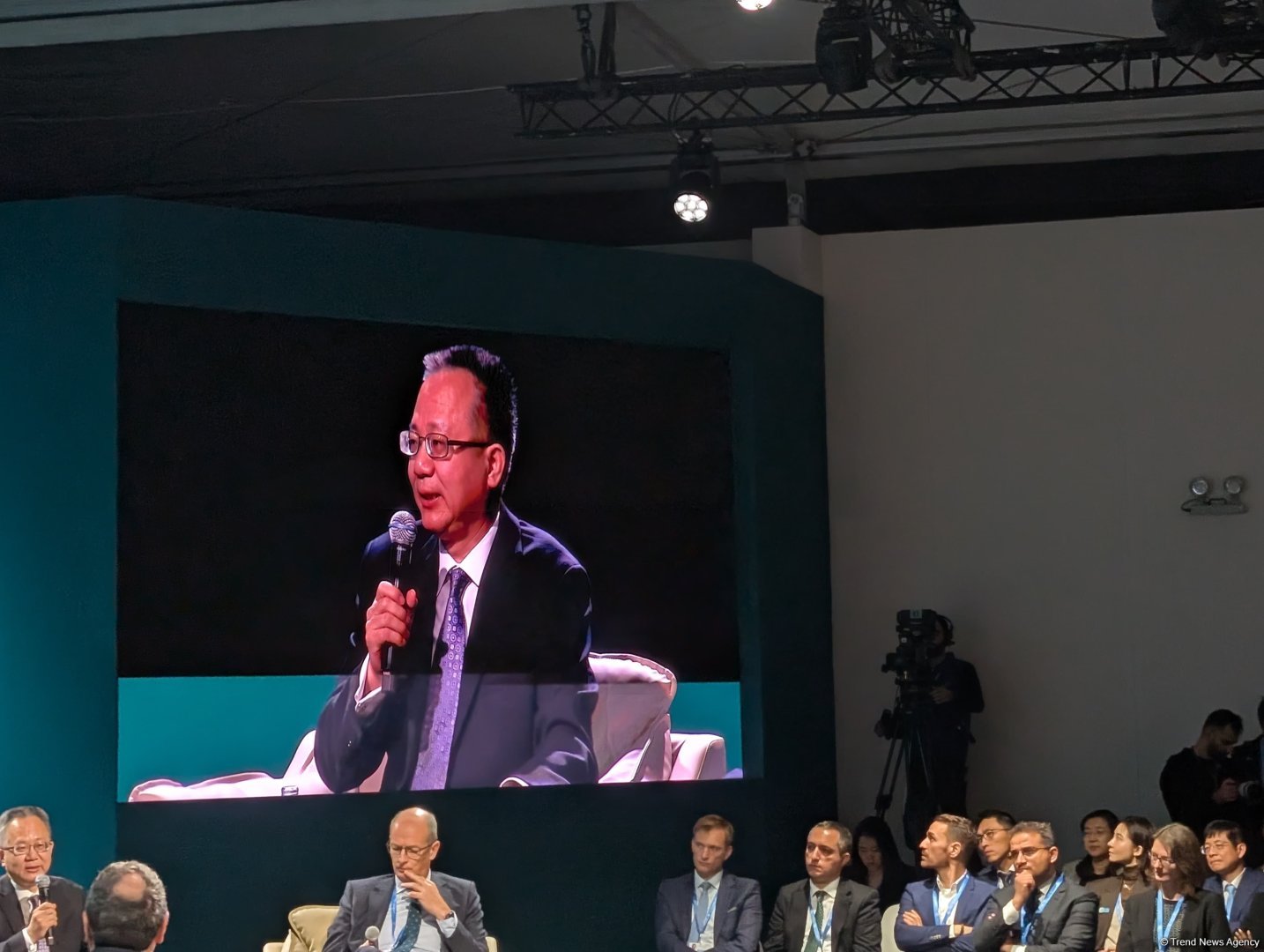BAKU, Azerbaijan, November 14. ADB is stepping up its focused and specialized efforts to support developing countries in promoting and strengthening their climate-resilient and climate-responsive financial system, Asian Development Bank Vice President for South, Central, and West Asia Yingming Yang said during a panel discussion on “Global Financial System: Scaling Up Financing for Climate Action," Trend reports.
“ADB is increasing its focused and specialized efforts to support developing countries in developing and strengthening their climate-resilient and climate-responsive financial systems. We are using traditional lending through financial intermediaries to support client banks in implementing and institutionalizing their climate finance systems to increase lending to climate projects. We are actively using policy-based lending to help countries establish a comprehensive framework for climate finance,” he said.
According to Yingming Yang, ADB is also taking a regional approach to scaling best practices.
“We recently held a forum on climate and natural risks where policymakers, regulators, and practitioners came together to share ideas and experiences on deepening financial and insurance markets to address climate change issues such as climate insurance. In terms of the relative importance of financial institutions and policy change, I have good reason to believe that they are all important, but some are more important than others, depending on countries and time, as a country-specific approach is key to designing and prioritizing policy change and financial institutions. Such aspects as domestic capacity, macroeconomic situation, and a country's level of development largely determine the feasibility and prioritization of policy changes and financial innovations. Therefore, at ADB, we aim to help develop capacity to address these gaps," he emphasized.
To note, the 29th session of the Conference of the Parties to the United Nations Framework Convention on Climate Change (COP29) started in Baku on November 11. The United Nations Framework Convention on Climate Change is an agreement signed at the Earth Summit in Rio de Janeiro in June 1992 to prevent dangerous human interference in the climate system.
A total of 198 countries are Parties to the Convention. Unless the parties decide otherwise, the COP is held annually. The first COP event took place in March 1995 in Berlin, and its secretariat is located in Bonn.
The main expectation from COP29 is to agree on a fair and ambitious New Collective Quantitative Goal (NCQG) on climate finance. The COP29 chairmanship has launched 14 initiatives that include linkages between climate action and the Sustainable Development Goals, including green energy corridors, green energy storage, harmony for climate resilience, clean hydrogen, methane reduction in organic waste, action on green digital technologies, and other topics.
Stay up-to-date with more news on Trend News Agency's WhatsApp channel







